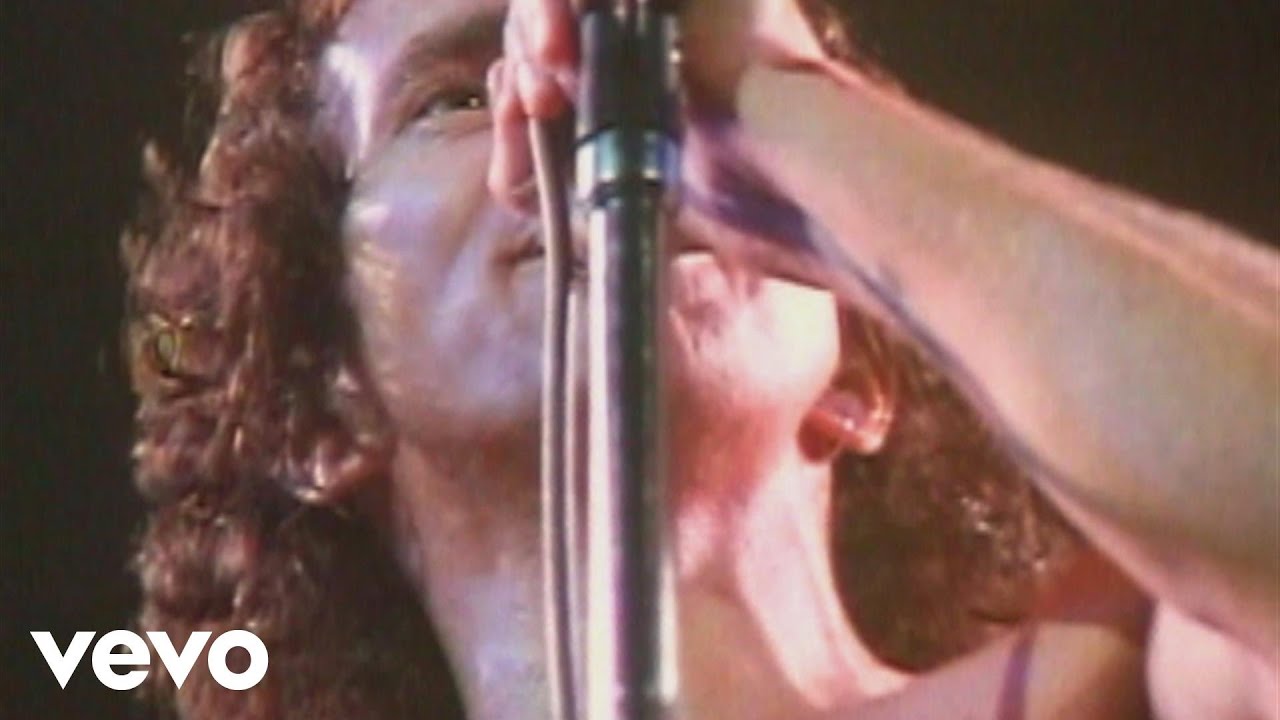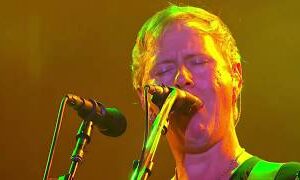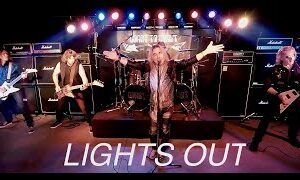AC/DC’s 1978 performance of “Let There Be Rock” at the Apollo Theatre is an electrifying testament to the raw energy and grit that defines rock ‘n roll. As the cameras zoom in, Angus Young, in his signature schoolboy uniform, unleashes a blizzard of riffs that hits harder than a double-kick intro at Wacken. With his frenetic guitar work and boundary-breaking antics, Young embodies the rebellious spirit that has made AC/DC legendary. It’s not just about the notes he plays; it’s about the relentless energy, a vital force that seems to pulsate through his veins directly into the crowd.
Enter Bon Scott, the enigmatic frontman whose voice sounds like it’s been distilled from pure grit and whiskey. His gritty vocals proclaim, “Let there be rock,” and you know he means business. Scott’s charisma is palpable, a magnetic force that draws you into every word, every shout. As he commands the stage, his connection with the audience is unmistakable — an unspoken pact to ride the lightning of rock together. It’s not just a performance; it’s a communal experience, a sacred rite in the house of rock.
The chemistry between band members, especially the rock-solid rhythm section of Phil Rudd and Cliff Williams, keeps the whole runaway freight train on the tracks. Rudd’s drumming is tight and unyielding, while Williams’ bass lines provide the foundation upon which Angus and Malcolm Young build their sonic empire. This synergy is what makes AC/DC’s sound so compelling. It’s not just loud; it’s precise, with each member playing an irreplaceable role in crafting their high-voltage electricity.
One of the standout moments is when Angus takes center stage for an extended guitar solo, seemingly conjuring sounds from another dimension. As he thrashes about the stage, his sweat-soaked performance is a testament to the physicality of rock. This is the part where lesser mortals would falter, but Angus Young channels something almost supernatural. Yes, you, still reading this at 2AM — this is the kind of solo that makes legends in the annals of metal history.
Ultimately, this performance is a near-sacred manifesto for rock itself. It tells us why AC/DC remains untouchable: their authenticity, their unapologetic hedonism, and that indomitable spirit. It’s more than just music; it’s a way of life. For those who dare to listen, who truly get it, the message is clear — crank it up, let loose, and let there be rock.












